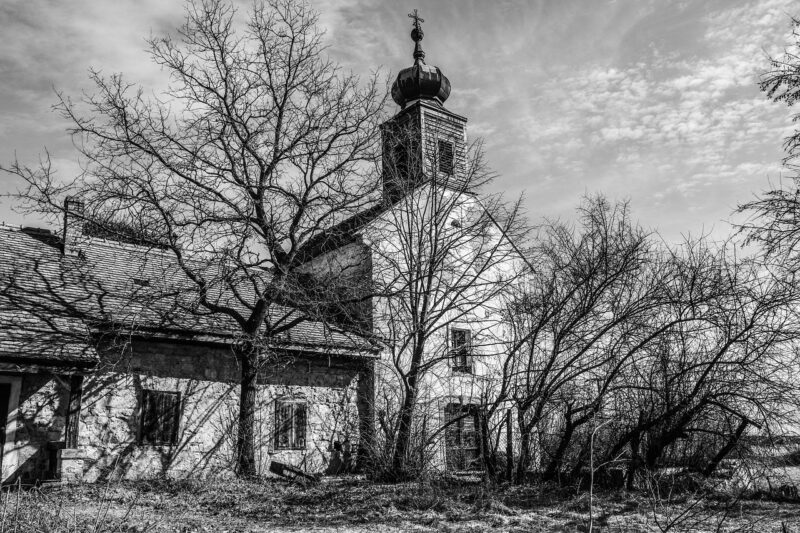The Allure of Destruction: Why We’re Fascinated with Post-Apocalyptic Worlds in Games and Comics
November 14, 2024

In recent years, there has been a dramatic rise in the popularity of post-apocalyptic themes within various forms of entertainment. From video games to comic books, the allure of a world in ruins captivates audiences and sparks immense creativity. But what is it about these dystopian landscapes that draw us in? In this article, we will explore the psychological, cultural, and artistic reasons behind our fascination with destruction, as well as the impact these narratives have on players and readers alike.
1. The Psychological Appeal of Ruin
Humans have an innate curiosity about their environment, and nothing piques that curiosity quite like a crumbled world. The post-apocalyptic setting allows us to grapple with fear, loss, and the fragility of civilization. Here are a few psychological factors that contribute to this fascination:
- Catharsis: Engaging with themes of destruction can provide a cathartic release of our own anxieties and fears. Experiencing a fictional apocalypse allows us to confront our feelings of helplessness in a controlled environment, making it easier to process complex emotions.
- Survival Instincts: Post-apocalyptic narratives often explore survivalism, pushing characters to their limits. This resonates with our primal instincts: our need for survival, resourcefulness, and resilience in dire circumstances. It fuels our imagination about what we would do in similar situations.
- Exploration of Humanity: Such settings provide a canvas for exploring human nature. How do people change when society breaks down? Do they devolve into savagery, or do they band together for survival? These narratives challenge our understanding of morality and ethics, offering rich territory for character development.
2. Cultural Reflections and Social Commentary
Post-apocalyptic worlds often serve as mirrors that reflect societal anxieties and critiques of our current state. As technology advances and political tensions heighten, these narratives often emerge in response:
- Fear of the Unknown: Global crises such as climate change, pandemics, and war shape our fears of an uncertain future. Post-apocalyptic stories resonate with these concerns, embodying the consequences of humanity’s choices and actions. A destroyed world acts as a warning of what could lie ahead if trends continue unchecked.
- Critique of Consumerism: Many post-apocalyptic narratives highlight the futility of a consumer-driven society when it collapses. They force viewers to re-examine what is truly important—often contrasting the chaos of a crumbled civilization with the simplicity of survival and companionship.
- Rebellion against Authority: Characters in such dystopian settings often challenge oppressive systems in their fight for survival. This reflects a broader societal desire for change and revolution in the face of tyranny, echoing current struggles for freedom and justice worldwide.
3. Artistic Creativity in Representation
The creative potential within post-apocalyptic settings is virtually limitless. Artists and creators can explore visual and narrative storytelling in unique ways:
- Visual Aesthetics: The contrast of decay against nature’s reclamation is a compelling visual motif. Landscapes filled with forgotten structures, ruined cities, and organic overgrowth create hauntingly beautiful imagery that provokes thought and emotion, captivating audiences nearly instantly.
- Diverse Storytelling Opportunities: The flexibility of these worlds accommodates a variety of genres—sci-fi, horror, drama, and adventure—allowing for hybrid storytelling that can blend multiple styles. For instance, a comic could explore comedic elements within a bleak world, creating innovative narratives that surprise readers.
- Character Development: The dire circumstances of post-apocalyptic worlds create intense opportunities for growth and change. As characters confront their darkest fears and make life-or-death decisions, audiences witness profound transformations that inspire empathy and emotional investment.
4. Popular Games and Comics Featuring Post-Apocalyptic Themes
Many influential games and comics have captured audiences with their unique takes on post-apocalyptic worlds, including:
- Video Games: Titles like “The Last of Us,” “Fallout,” and “Horizon Zero Dawn” offer intricate narratives and immersive gameplay set in richly detailed post-apocalyptic landscapes. They provide emotional depth and explore themes of loss, hope, and humanity’s tenacity in the face of destruction.
- Comics: Works like “The Walking Dead” and “Y: The Last Man” delve into human relationships and societal dilemmas amidst chaotic settings, captivating readers through gripping storytelling, character development, and moral complexities that resonate on various levels.
- Movies and TV Shows: Films such as “Mad Max” and series like “The 100” expand the post-apocalyptic genre, offering audiences thrilling adventures while highlighting the resilience of human spirit and the struggle for survival.
5. Conclusion: Embracing the Beauty in Destruction
Ultimately, our fascination with post-apocalyptic worlds reveals much about our psyche, culture, and imagination. While these narratives often explore dark themes of loss and devastation, they also highlight our resilience, hope, and the beauty found in the struggle for survival. It is this duality—the juxtaposition of despair and hope—that resonates powerfully with audiences and continues to inspire creators across all mediums.
In embracing the allure of destruction, we delve into our fears and aspirations, prompting profound reflections on what it means to be human. As we gaze into the ruins of fictional worlds, we find not just horror, but also narratives of redemption, renewal, and the enduring spirit of humanity. Such stories remind us of our capacity to overcome and strive in a world filled with uncertainties.
Embrace the journey through the darkness, for our fascination with post-apocalyptic worlds is not just about the end of things but also about the possibility of new beginnings.







